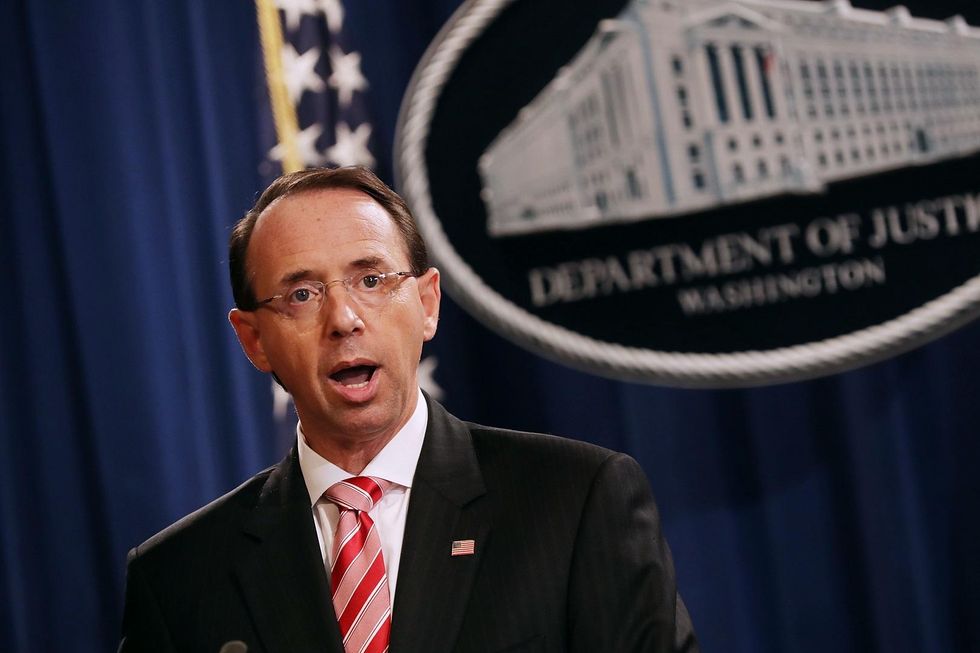
U.S. Deputy Attorney General Rod Rosenstein announced indictments against 12 Russian intelligence agents on July 13, 2018 in Washington, DC, in connection with cyber attacks during the 2016 presidential election. (Chip Somodevilla/Getty Images)

Deputy Attorney General Rod Rosenstein announced Friday that the grand jury for the District of Columbia indicted 12 Russians on charges related to attempts to influence the 2016 presidential election.
These indictments targeted 12 GRU officers. The GRU is an intelligence agency and part of the Russian military.
Eleven of the 12 Russians are charged with money laundering, aggravated identity theft, and conspiracy to commit computer crimes. All 12 were indicted for hacking.
According to Rosenstein, the GRU officers “hacked the website of a state election board, and stole information of about 500,000 voters.” The indictment does not specify which state had been hacked.
In addition, the group visited the websites related to "state and county offices responsible for administering the 2016 U.S. elections" in several states, including Georgia, Iowa, and Florida, to "identify vulnerabilities."
The Russians also sent more than 100 spearphishing emails to "organizations and personnel involved in administering elections in numerous Florida counties" in and around election day in November 2016. Spearphishing involves sending someone an email that looks like it came from a sender that they trust. The recipient is then often asked to enter personal information.
Among the victims targeted in these attacks were the Democratic National Committee, the Democratic Congressional Campaign Committee, and the Hillary Clinton Campaign.
Rosenstein said that his team had determined that these 12 Russians were also behind the websites "DCLeaks" and "Guccifer 2.0," which they used to release information that they had stolen through hacking and spearphishing. Using these methods, the Russians released "tens of thousands of stolen emails and documents."
In his announcement, Rosenstein made it a point not to specifically name Hillary Clinton or the Democratic National Committee. He addressed why he made this decision:
In my remarks, I have not identified the victims. When we confront foreign interference in American elections, it is important for us to avoid thinking politically as Republicans or Democrats and instead to think patriotically as Americans. Our response must not depend on who was victimized.
Rosenstein also warned that:
People who speculate about federal investigations often do not know all the relevant facts.